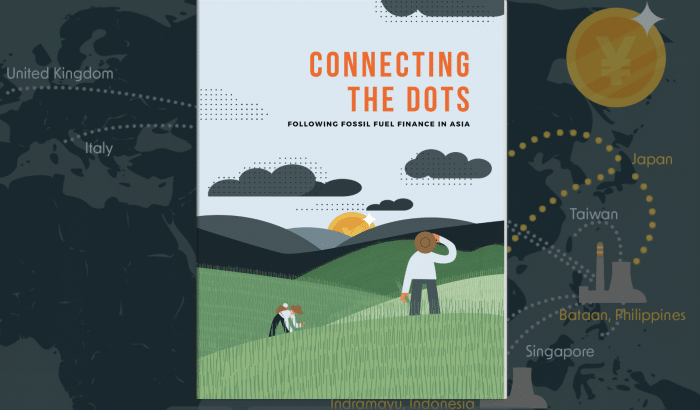
350
Let’s stop fossil fuel finance
Millions have mobilized to stop the climate crisis from getting worse. Now’s the time to follow the money and pressure all banks, insurers, and governments to stop funding fossil fuels.
Pledge your support
Türkçe | Português | Bahasa Indonesia | Español | French | Deutsch | 日本語
Even after adopting the Paris Climate Agreement in 2015, major global banks’ financing for fossil fuels continues to increase every year. As long as money continues to flow into new fossil fuel developments, we will never have a chance at a just transition away from climate chaos. Ending fossil fuel finance is a vital first step in building a future towards a rapid and sustained fossil fuel decline on a 1.5° Celsius compatible pathway.
The climate movement is driving home the fact that by increasing financing of fossil fuels, banks and other financiers are responsible for an extremely high risk of massive harm to the planet and its people — that is, banks and the financial industry at large have enormous climate responsibility.
That’s why, in many countries around the world, campaigns calling banks, finance ministers, and governments to end fossil fuel finance are popping up. Add your weight to the public pressure on these institutions to do the right thing: pledge to take action against institutions bankrolling climate disaster.
Sign up now, and we will keep you posted on the most relevant and local actions you can take.
Active Campaigns
Support these campaigns wherever you are, and be up-to-date with more ways to take action.
Latest updates

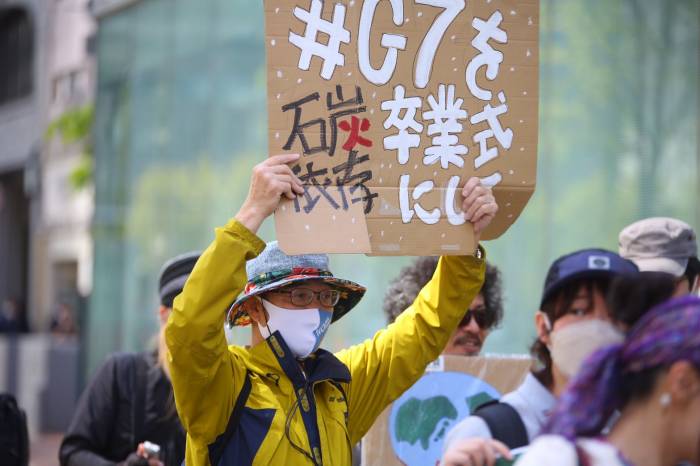
The Global Week of Action is happening – join us!

Two-faced ICBC 🎭
Reports We Follow
RAN: Banking on Climate Change
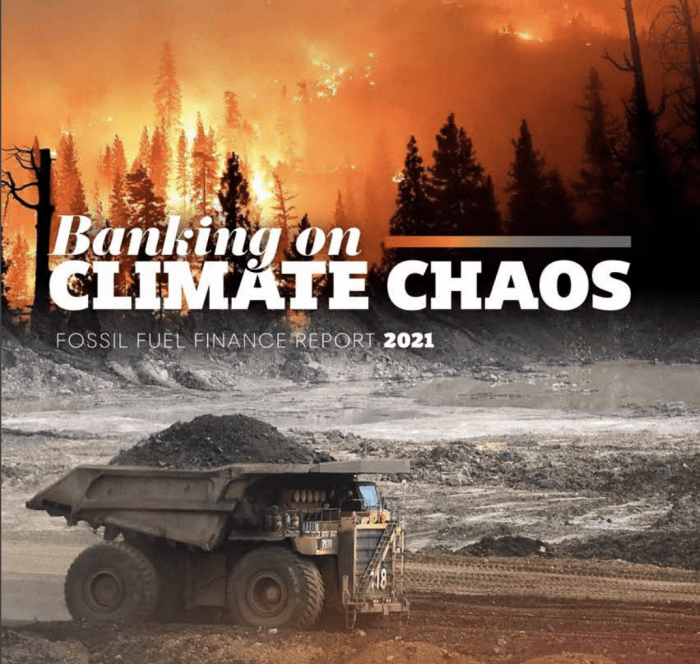
This is the latest edition of the Rainforest Action Network and its partners' annual fossil fuel finance report, Banking on Climate Change 2021. The report lays out banks’ support for fossil fuels five years after the Paris Agreement was adopted, which alarmingly, is still on the rise.
Urgewald: Global Coal Exit List
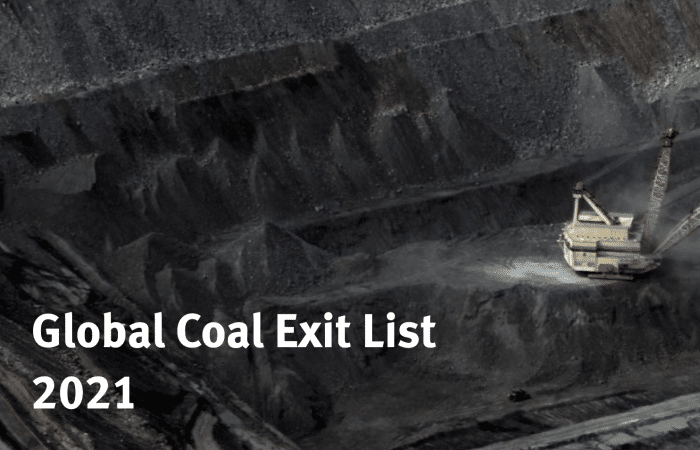
Urgewald's Global Coal Exit List 2021 is a resource for investors and financial institutions that want to understand and manage climate risks in their portfolios.
Reclaim Finance: Make Money Work for Climate
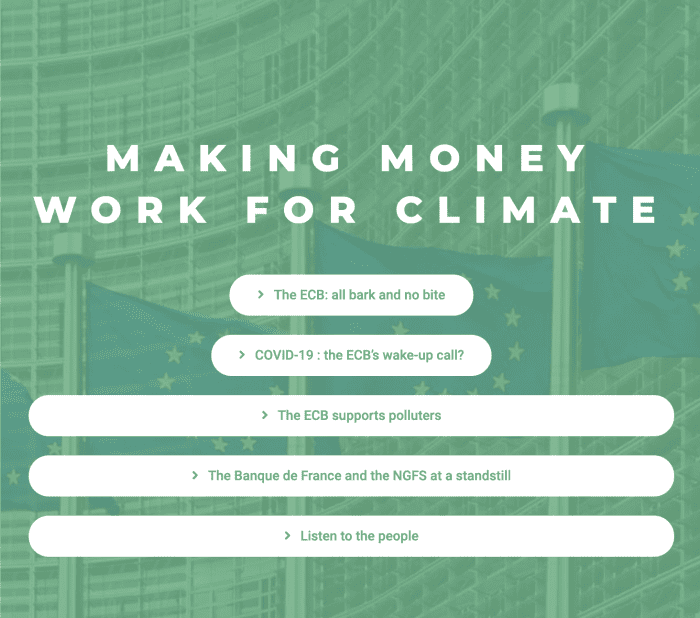
Central banks can significantly influence how polluting and “green” activities are financed. They supervise the monetary and financial system and issue money, thus determining money availability and lending conditions. In times of crisis, central banks are lenders of last resort for institutions and governments. Learn more.
Useful Resources
If we can get enough finance institutions to turn their backs on dirty fossil fuel projects – we can free up that money to fund real renewable energy solutions that work for all. You can use the resources and toolkits below to help you get started and achieve meaningful change wherever you are.